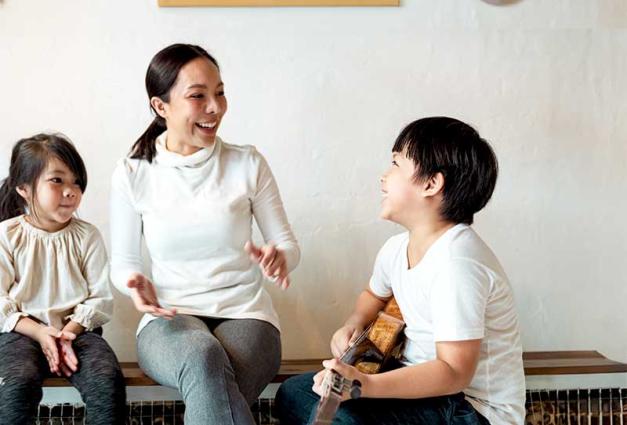We all seek out advice from other people. We ask other’s opinions about our romantic relationships, what restaurant they would recommend, and which local medical practice they think is the best. But what if we could offer advice to our younger self – the person we were at some time earlier in our life? What advice would we give ourselves if we could go back in time?
Before you think of this as an exercise in futility -- after all, you will never become your younger self -- think of the benefits of reflecting on this advice. The very act of offering advice suggests that we are now in a position of wisdom relative to the younger self to whom we are offering it. Looking back, we may realize many opportunities we passed up or poor decisions we made. We may see that we may have lost those opportunities but, even so, we have learned along the way.
For example, in our research, one individual told his younger self to “Grab the opportunities that may knock only once.” Another said “Follow your heart and don’t let Matty go.” Although these people may have missed opportunities, they seem to have learned from their mistakes moving forward. It’s unlikely that Matty will be available again, but the advice giver may very well follow his heart with Suzanne. Clearly, then, reflecting on the advice we would offer our younger selves can provide us with useful directions for the remainder of our lives.
When we asked over 400 research participants to offer advice to their younger selves, they had a lot to say: “Don’t take yourself too seriously,” Don’t let your worries and fears control you, “Don’t waste money on things that don’t matter.” The most common types of advice centered around relationships (one man wrote “Do.Not.Marry.Her”), education (“Stay in school”), and how to treat oneself (“Love yourself; you are valuable”). Not only did everyone have advice to offer to their younger self, but some offered many pieces of advice.
Offering advice is one thing. Following it is another. Over a third of the participants said that they spontaneously think about this advice at least once a week, and more than half said they followed their own advice, for example, by being kinder to themselves. Others, however, were either unable to follow their advice because it was too late (“Don’t have a child at 16”) or because they were unwilling to do so (“Stop smoking”). Even so, following the advice to one’s younger self was important to how people currently viewed themselves. Participants who now followed the advice they would give their younger self thought their younger self would view them more positively than people who did not follow the advice, many of whom thought their younger self would be disappointed in who they are now.
What determines the kind of advice we offer to your younger selves? In our studies, the advice was often linked to a positive or negative pivotal event that had occurred in the person’s life. For example, one individual whose pivotal event was his grandmother’s death offered advice to his younger self that “life is short, cherish every day.” Another who had been arrested subsequently offered advice to not “hang out with the wrong crowd.”
Not surprisingly, negative pivotal events were more often tinged with regret relative to positive pivotal events such as the birth of a child. And the regrets were as often about actions not taken as about actions taken. In other words, people were as likely to regret that they did not do something , such as not investing their money or failing to pursue their education, as they were to regret engaging in certain behaviors (such as smoking or having a child at 16). Regret, however, is not necessarily a bad thing. Regret indicates that the person recognizes that a behavior or course of action was ill-advised and perhaps sets in motion a more favorable path.
In thinking about the advice we would offer to our younger selves, we know ourselves better than anyone else. So, we may benefit more from our own advice than other people would. And we are often in a better position to offer advice to ourselves than others are. With that in mind, what advice do you have for YOUR younger self?
For Further Reading:
Kowalski, R. M., & McCord, A. (2019). If I knew then what I know now: Advice to my younger self. The Journal of Social Psychology. https://doi.org/doi:10.1080/00224545.2019.1609401
https://www.goodreads.com/quotes/1460902-and-a-mistake-repeated-more-than-once-is-a-decision
Robin Kowalski is the Centennial Professor at Clemson University whose research focuses primarily on aversive interpersonal behaviors.




